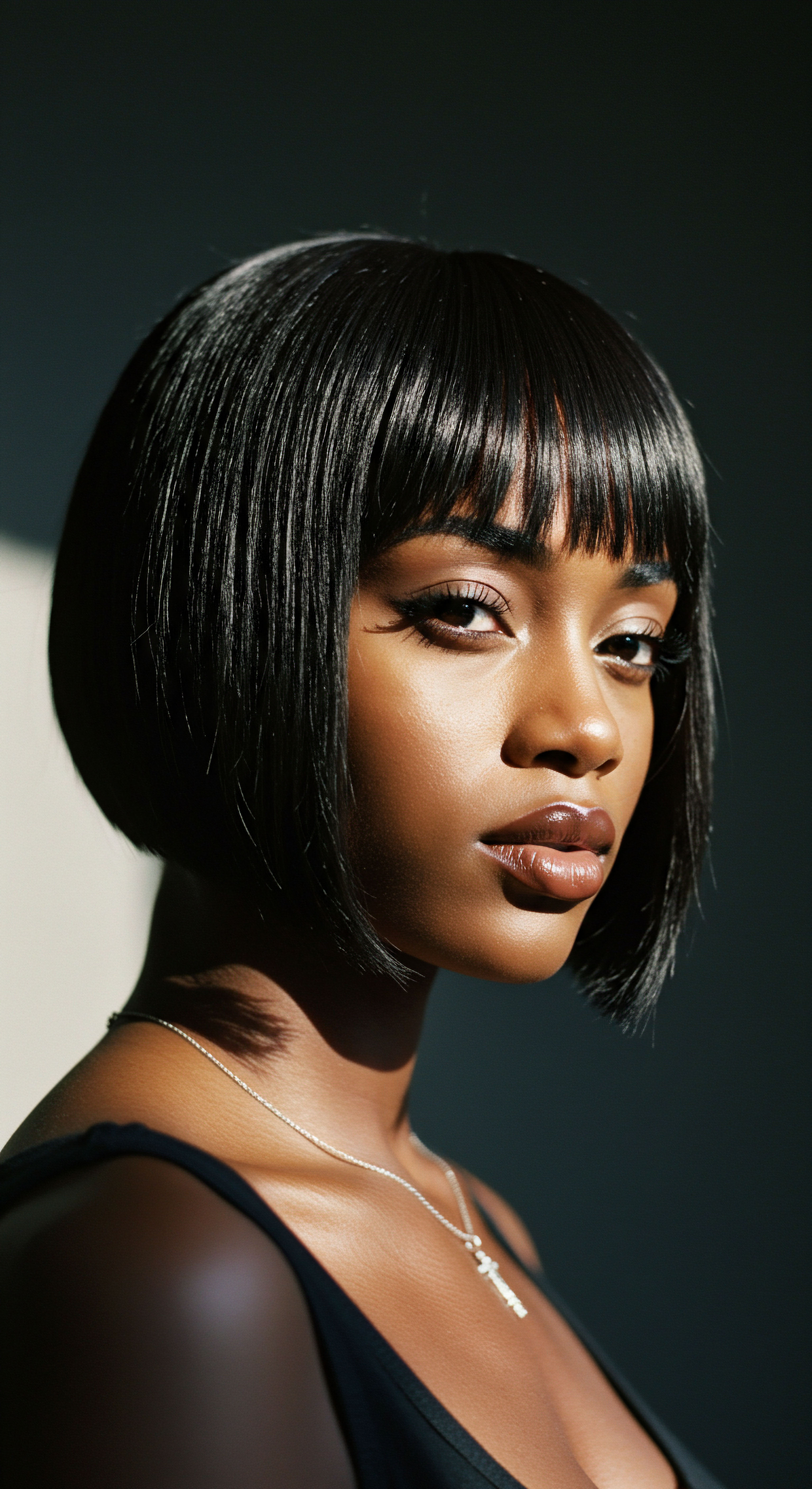
Roots
A quiet observation often arises in moments of gentle reflection ❉ how the rhythm of our days, particularly the stillness of our nights, seems to echo in the vitality of our strands. It is a subtle connection, yet one deeply rooted in the very biological symphony that orchestrates our being. The vibrant life of our hair, its strength, its texture, its very presence, is not merely a surface adornment.
It mirrors the profound happenings within our bodies, responding with remarkable sensitivity to the unseen shifts and balances of our internal world. At the heart of this intricate dance lies the profound influence of sleep, a period of restoration often underestimated in its power to shape our physical landscape, including the delicate ecosystem of our scalp and the continuous cycle of hair growth.
To truly appreciate this connection, one must first consider the foundational biological rhythms that govern our existence. The human body operates on a remarkable internal clock, known as the Circadian Rhythm, which aligns our physiological processes with the 24-hour cycle of light and darkness. This rhythm dictates when we feel awake, when we feel sleepy, and when countless cellular repair and regeneration processes unfold. Hair follicles, far from being passive structures, possess their own biological clock, responding to these overarching bodily signals.
During the deep stages of sleep, particularly the non-REM phase, the body enters a state of profound repair and rejuvenation. This is a period of heightened cellular turnover and tissue repair, processes that directly support the active growth phase of the hair cycle.
When the harmony of this internal clock is disrupted by insufficient sleep, a cascade of physiological adjustments begins. The body perceives chronic sleep deprivation as a form of stress, triggering a systemic response. This initial, broad impact can set the stage for more specific hormonal shifts that directly affect scalp health and hair growth. The delicate balance maintained during restful periods begins to waver, and the repercussions, while sometimes slow to surface, often become visible in the very strands we cherish.
The subtle vitality of our hair mirrors the profound biological rhythms within, especially the restorative power of sleep.
A key element in this foundational understanding involves the body’s general stress response. When sleep is consistently cut short, the body reacts as if facing a threat, initiating a series of adaptive measures. This can alter the very environment in which hair follicles reside, influencing their capacity for healthy growth. The connection is not always immediate or dramatic, but rather a slow, persistent redirection of resources away from non-essential functions, like robust hair production, towards perceived survival priorities.
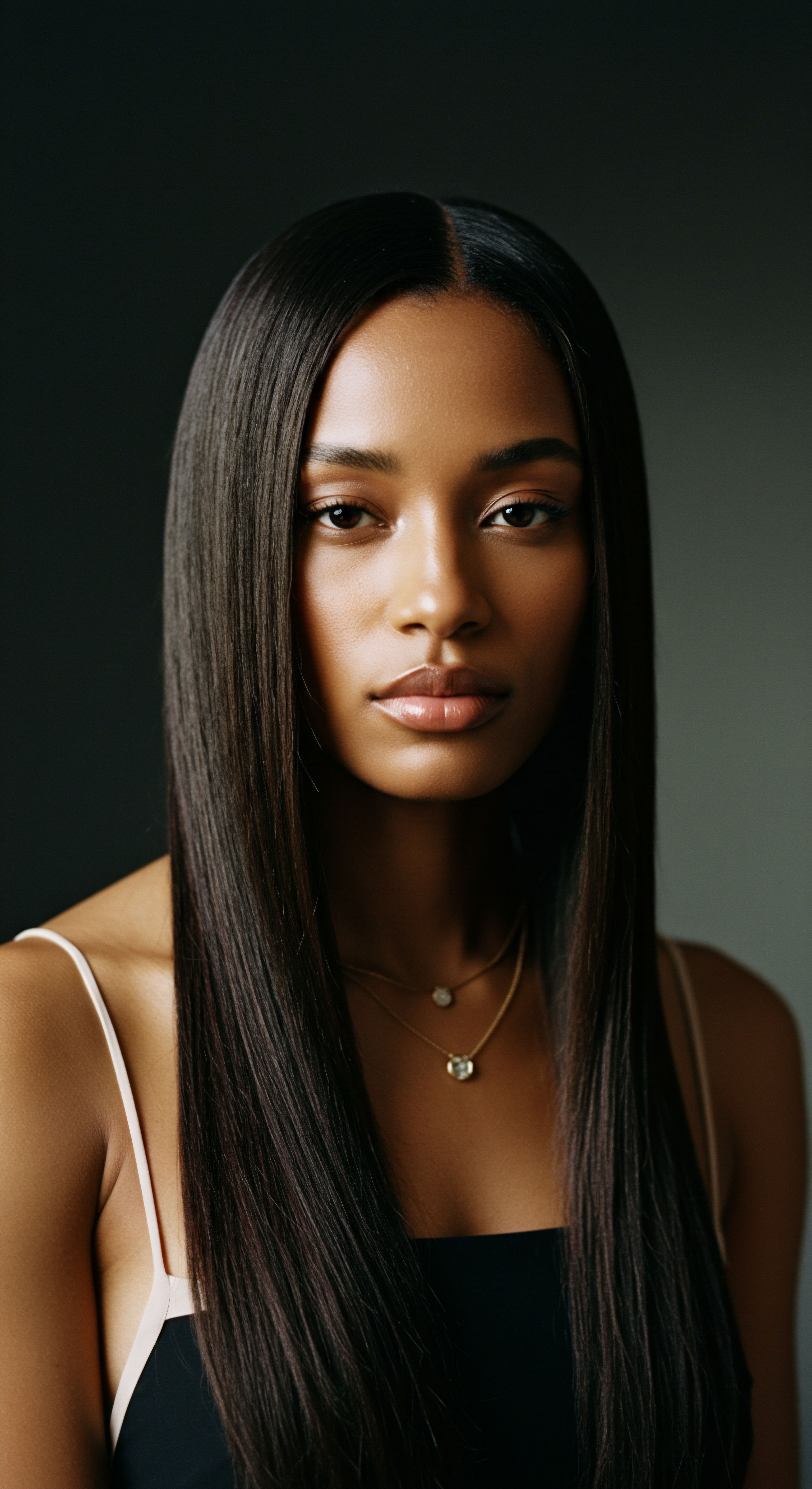
Ritual
Stepping from the quiet contemplation of our internal rhythms, we arrive at the realm of daily practice, the rituals that shape our tangible experience. When the gentle ebb and flow of sufficient sleep is disturbed, the hair often whispers its concerns, revealing the hidden disquiet within. It might manifest as a noticeable increase in daily shedding, a subtle dullness in texture, or perhaps a feeling of diminished vitality on the scalp. These are not merely cosmetic shifts; they are signals from a system striving to regain its balance, urging us to consider the practical wisdom of rest.
The visible manifestations of sleep disruption on hair and scalp can vary, yet they frequently point to an underlying strain. An individual might observe hair feeling drier than usual, more prone to breakage, or experiencing an unexpected lack of bounce and resilience. The scalp itself might feel more sensitive, perhaps even prone to flakiness or irritation, reflecting a compromised barrier function. These changes are often the external echoes of internal hormonal adjustments and systemic responses to inadequate rest.
Understanding these signs invites a gentle, yet purposeful, approach to daily hair care. While a singular night of lost sleep may not yield immediate, dramatic changes, prolonged periods of insufficient rest can indeed lead to noticeable shifts in hair quality and quantity. The body, under such circumstances, redirects its energy, potentially impacting the delivery of vital nutrients and oxygen to the hair follicles, which are the very engines of hair growth.
Hair whispers its concerns when sleep is disturbed, signaling internal hormonal shifts.
Consider the practice of gentle, mindful hair care as a way to support the strands through periods of internal strain. This might involve adopting a softer touch during washing, opting for hydrating treatments that replenish moisture, or incorporating scalp massages to encourage healthy circulation. Such rituals, while not directly addressing the root cause of sleep deprivation, can provide a buffer, mitigating some of the external symptoms and offering a sense of nurturing care to both the hair and the spirit. They become a conscious act of listening to the body’s quiet calls for equilibrium.
To help contextualize the effects of insufficient sleep on hair, here are some common observations:
- Increased Shedding ❉ Sleep deprivation can push hair follicles into an early resting phase, resulting in more hairs shedding than usual.
- Diminished Luster ❉ Hair may appear dull or lack its usual sheen due to impaired cellular repair and nutrient delivery during sleep.
- Scalp Sensitivity ❉ An imbalance in the body’s inflammatory response can lead to a more irritable or sensitive scalp.
- Slower Growth ❉ The active growth phase of hair can shorten, leading to hair that feels as if it is not growing as quickly or reaching its typical length.
These subtle shifts are invitations to re-evaluate our sleep habits, acknowledging the profound connection between our rest and the vitality of our hair. They beckon us to consider sleep not as a luxury, but as a foundational pillar of overall well-being, reflected clearly in the strength and beauty of our textured hair.
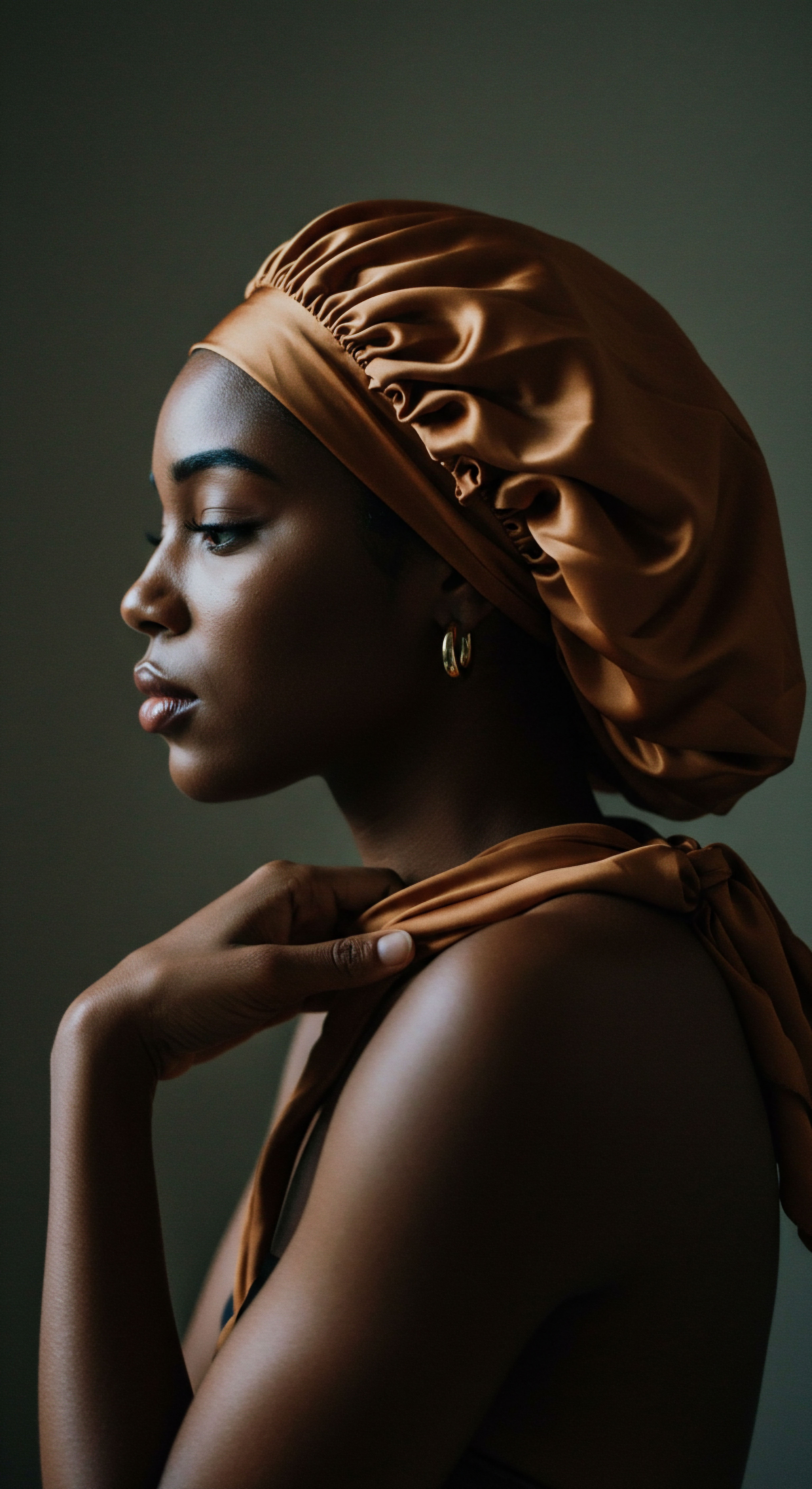
Relay
As we move beyond the immediate observations, a deeper, more scientific exploration beckons, inviting us to peer into the intricate biochemical dialogue that underpins the relationship between sleep and hair. This is where the nuanced interplay of hormones truly takes center stage, revealing how insufficient rest can send ripples through the body’s delicate regulatory systems, ultimately impacting the very architecture of our strands. The conversation extends beyond simple fatigue, delving into the specific hormonal shifts that can reshape scalp health and alter the hair growth cycle.

What Hormones Directly Impact Hair Follicle Activity?
The human body’s endocrine system, a network of glands that secrete hormones, acts as a silent conductor for countless physiological processes, including the cyclical life of hair. When sleep is compromised, this orchestra can fall out of tune, with several key hormones directly influencing the hair follicle’s journey through its growth, transition, and resting phases.
- Cortisol ❉ Often called the stress hormone, cortisol is typically secreted in a diurnal rhythm, peaking in the morning and gradually decreasing throughout the day to allow for restful sleep. Chronic sleep deprivation, however, can disrupt this natural pattern, leading to elevated cortisol levels, especially at night. High levels of cortisol have been linked to several types of hair loss, particularly Telogen Effluvium, a condition where hair follicles are prematurely pushed into the resting phase, resulting in excessive shedding. Research suggests that cortisol can inhibit the dermal papilla from secreting GAS6, a molecule that activates hair follicle stem cells, thereby hindering hair regrowth. The presence of increased cortisol in hair samples of individuals experiencing chronic stress underscores its long-term impact on the body, including hair health.
- Melatonin ❉ This hormone is primarily known for regulating the sleep-wake cycle, being produced by the pineal gland in response to darkness. Yet, its influence extends beyond sleep, with emerging research highlighting its role in hair growth. Melatonin possesses powerful antioxidant properties, protecting hair follicles from oxidative stress that can damage cells and contribute to hair loss. It is believed to directly stimulate hair growth by prolonging the anagen (growth) phase of the hair cycle, thus reducing premature shedding. A reduction in melatonin due to poor sleep can therefore diminish this protective and growth-promoting effect.
- Growth Hormone (GH) ❉ Secreted predominantly during deep sleep, particularly non-REM stages, growth hormone is vital for tissue repair and cell regeneration throughout the body. This includes the cells within hair follicles. Insufficient sleep can interfere with the optimal release of GH, potentially leading to slower hair growth or stunted follicles. The robust repair processes that support the active growth phase of hair are diminished without adequate GH levels.
- Thyroid Hormones ❉ While not directly regulated by sleep in the same immediate way as cortisol or melatonin, thyroid hormones (T3 and T4) are crucial for overall metabolic regulation, which indirectly impacts hair health. Disruptions in sleep can sometimes be a symptom or a contributor to thyroid dysfunction, which in turn can lead to hair thinning or loss. Thyroid hormones are known to regulate the hair growth cycle and influence the activity of circadian clock genes within hair follicles themselves.
- Sex Hormones (Estrogen and Androgens) ❉ Sleep deprivation can also influence the delicate balance of sex hormones, such as estrogen and testosterone. While androgens, particularly dihydrotestosterone (DHT), are well-known contributors to pattern baldness, the balance between estrogens and androgens plays a role in hair cycle length and miniaturization. A disruption in this hormonal equilibrium, potentially exacerbated by chronic sleep loss, can contribute to hair thinning or breakage.
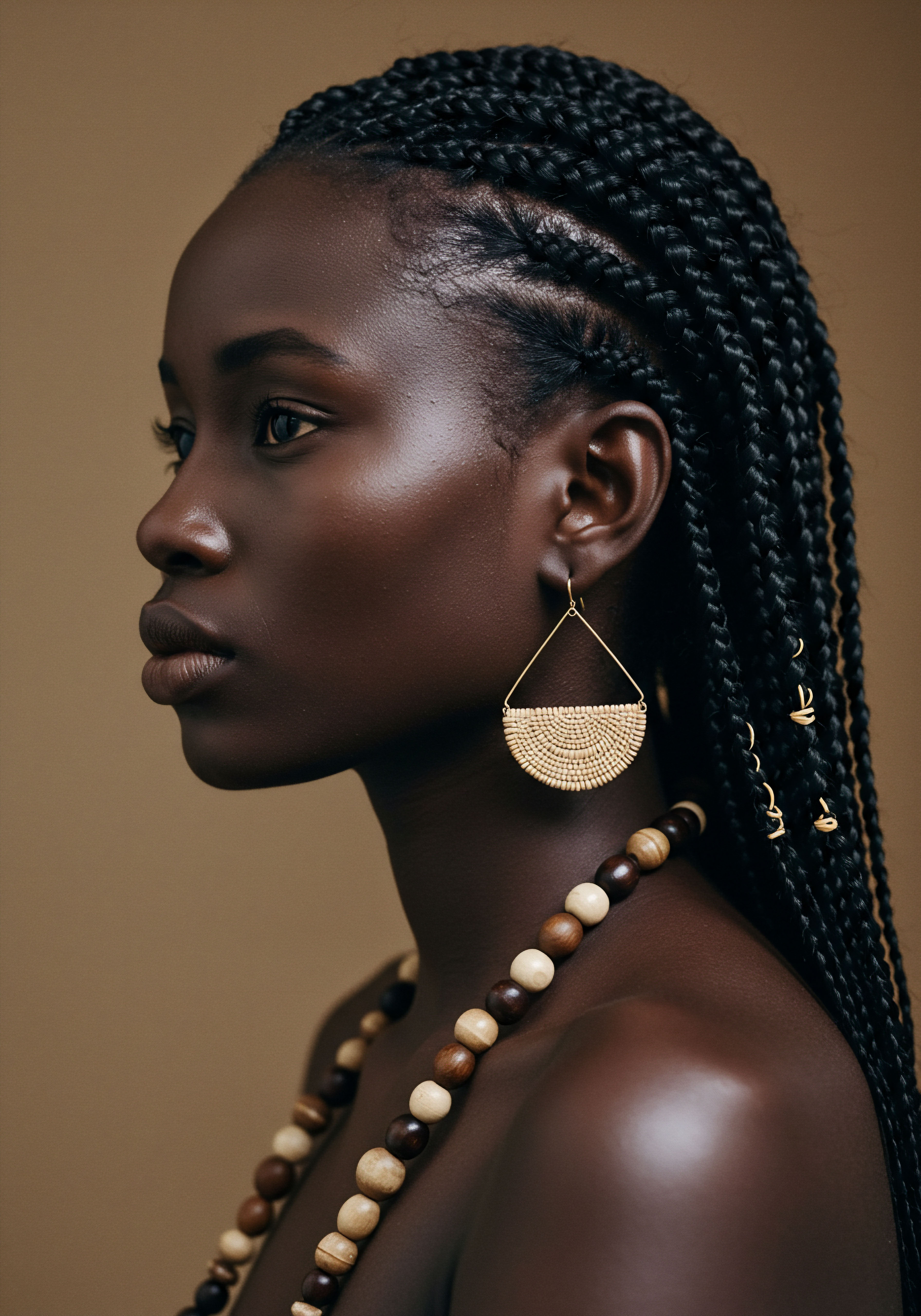
How Does Insufficient Sleep Influence Scalp Microcirculation and Inflammation?
Beyond direct hormonal actions on hair follicles, insufficient sleep creates a systemic environment that can compromise scalp health through altered microcirculation and increased inflammation. The scalp, a highly vascular environment, requires a steady supply of oxygen and nutrients to sustain healthy hair growth.
During deep sleep, blood flow to the scalp increases, delivering these vital components to the hair follicles. When sleep is consistently disrupted, this optimal circulation can be hindered, potentially depriving hair follicles of the nourishment they need, leading to weaker strands and slower growth.
Furthermore, chronic lack of sleep is a well-established trigger for systemic inflammation. The body’s immune system, which undergoes important regulatory activities during sleep, can become dysregulated. Studies have shown that sleep deprivation can lead to an increase in pro-inflammatory cytokines, such as IL-6 and TNF-α.
This inflammatory state can damage hair follicles, contribute to conditions like telogen effluvium, and even exacerbate autoimmune hair loss conditions such as alopecia areata. The presence of these inflammatory markers can create a hostile environment for hair growth, impeding cellular function and repair within the scalp.
Insufficient sleep can trigger a cascade of hormonal imbalances, particularly cortisol and melatonin, which directly alter hair follicle activity and scalp health.
A compelling illustration of sleep’s systemic impact on hair health comes from a study examining the effects of sleep deprivation on beard hair growth in young men. In research published in Acta Neurobiologiae Experimentalis, 10 young men aged 22-25 were subjected to two days of sleep deprivation. The findings revealed a measurable decrease in their beard hair growth by 19%. The researchers posited that this reduction was due to a negative impact on protein synthesis, likely a consequence of the hormonal imbalances stemming from the poor sleep.
While this study focuses on facial hair, it powerfully underscores the principle that sleep quality directly influences the body’s capacity for protein synthesis and tissue regeneration, processes universally vital for hair across the scalp. This specific, often overlooked data point, highlights a direct physiological consequence of sleep disruption on hair production, moving beyond general stress responses to a more precise biological effect.
| Hormone Cortisol |
| Normal Function Stress response, circadian rhythm regulation |
| Impact of Insufficient Sleep Elevated, especially at night; disrupted diurnal pattern |
| Hair Cycle Consequence Premature shift to telogen phase; inhibited hair stem cell activation |
| Hormone Melatonin |
| Normal Function Sleep-wake cycle, antioxidant |
| Impact of Insufficient Sleep Reduced production |
| Hair Cycle Consequence Shortened anagen phase; reduced antioxidant protection of follicles |
| Hormone Growth Hormone |
| Normal Function Tissue repair, cell regeneration |
| Impact of Insufficient Sleep Decreased nocturnal release |
| Hair Cycle Consequence Slower growth; stunted follicle activity |
| Hormone Thyroid Hormones |
| Normal Function Metabolic regulation, hair cycle regulation |
| Impact of Insufficient Sleep Potential disruption, especially with chronic issues |
| Hair Cycle Consequence Thinning, diffuse hair loss; disordered hair cycle |
| Hormone Estrogen/Androgens |
| Normal Function Sex hormone balance, hair cycle length |
| Impact of Insufficient Sleep Imbalance, potentially altered levels |
| Hair Cycle Consequence Thinning, breakage; altered hair cycle |
The interconnectedness of sleep, hormones, and hair health paints a picture of a finely tuned system. When one element falters, others follow. Recognizing these deep biological connections allows for a more holistic approach to hair care, one that acknowledges the profound influence of internal well-being on external vitality. The wisdom of proper rest, therefore, extends far beyond mere physical comfort, touching the very core of our physiological balance and, by extension, the strength and beauty of our hair.
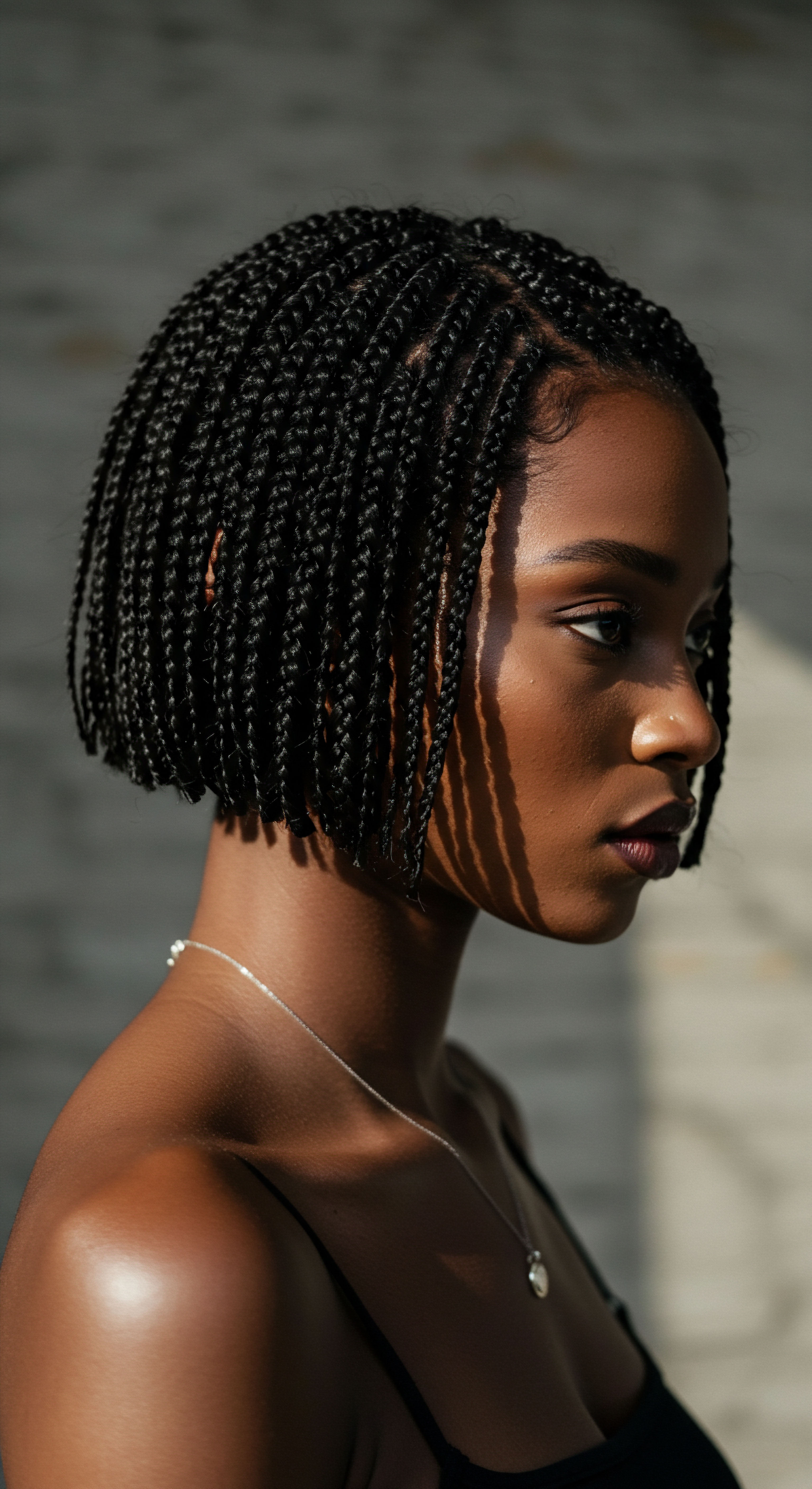
Reflection
The whispers of our strands often carry tales of our inner world, of the quiet battles fought and the harmonies sustained. In exploring the intricate dance between sleep and our hair’s vitality, we come to appreciate that true radiance stems not merely from external applications, but from a profound attunement to our body’s inherent wisdom. Our hair, particularly textured hair with its unique story and structure, stands as a testament to the delicate balance of our physiological landscape. When the restorative balm of deep sleep is withheld, the hormonal symphony within can falter, and the consequences, though subtle at first, may manifest as a diminished vibrancy in our crown.
This journey into the science of sleep and hair growth unveils a deeper understanding of self-care. It suggests that tending to our hair is a holistic endeavor, one that calls for honoring the body’s need for profound rest as much as it calls for mindful product choices. The rhythms of night and day are not just external phenomena; they are etched into our very cells, influencing the life cycle of each hair follicle. As we seek to celebrate and nurture the beauty of textured hair, let us remember the silent, powerful work performed in the quiet hours of slumber, for within that stillness lies a key to unlocking its full, vibrant potential.
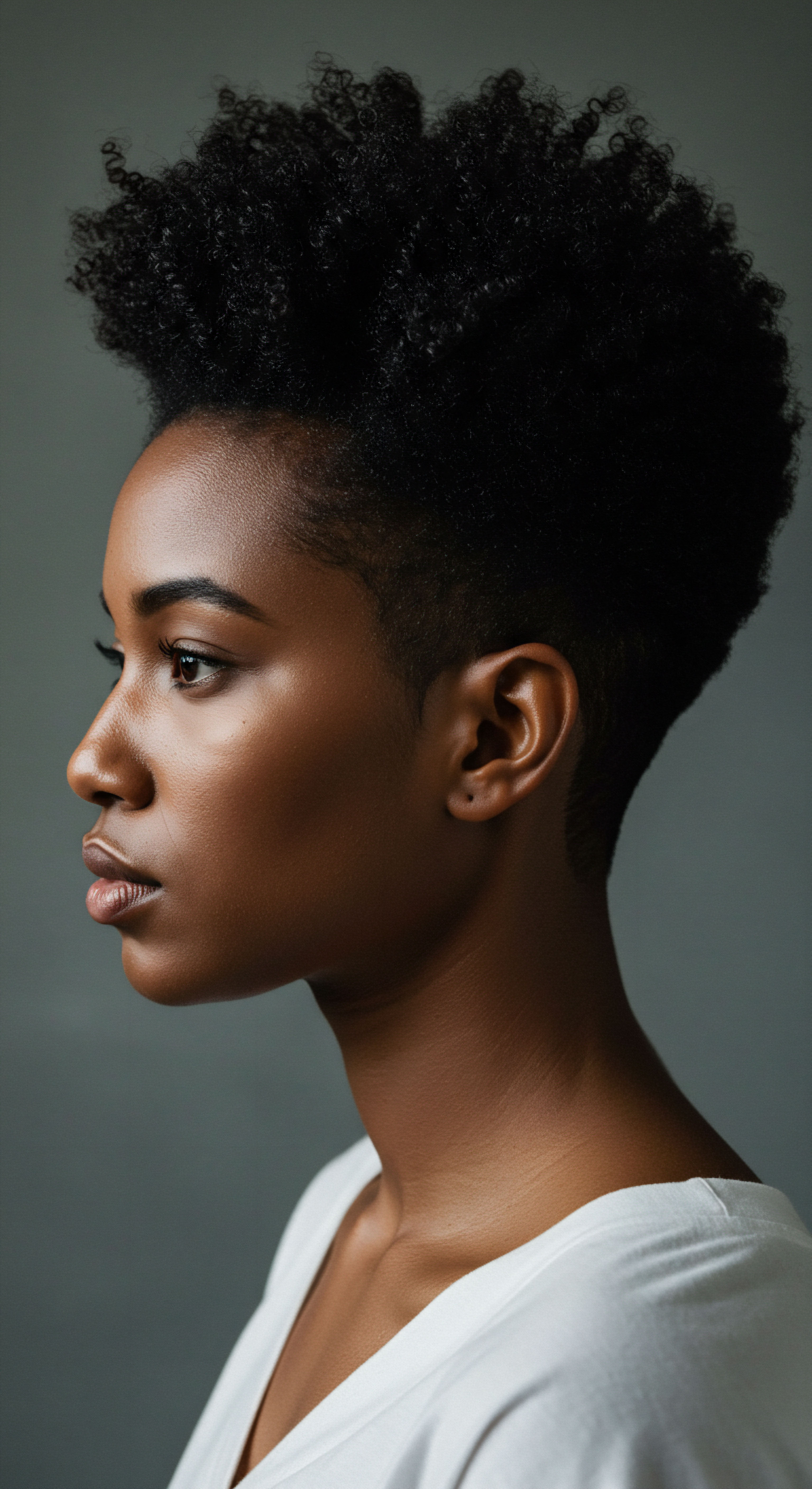
References
- HairFree & HairGrow. Sleep and Hair Loss. Relationship Explained. 2023.
- HHC Clinics. Sleep and Hair Growth – What’s the Connection? 2024.
- Centre Clauderer. Hair and sleep ❉ the importance of the night for hair health. 2025.
- Clinikally. Impact of Sleep Deprivation on Hair Health. 2024.
- Su Y, Hu X, Chen Y, et al. Melatonin’s Role in Hair Follicle Growth and Development ❉ A Cashmere Goat Perspective. 2023.
- Hair Doctors. Can Lack of Sleep Make You Lose Hair? Uncovering the Connection. 2025.
- Unger R. Hair Loss and Insomnia. 2024.
- Longevita. Can Lack Of Sleep Cause Hair Loss? 2025.
- Treatment Rooms London. Can A Lack of Sleep Cause Hair Loss? 2024.
- Clinikally. Melatonin for Hair Loss & Growth, Here’s Everything You Need to Know. 2024.
- Typology. The consequences of a lack of sleep on your hair. 2024.
- Limmer Hair Transplant Center. Can Lack of Sleep Cause Hair Loss? 2025.
- LearnSkin. How Does the Circadian Rhythm Affect Hair Growth? 2017.
- Plikus MV, Gay DL, Treutlein B, et al. Clock genes, hair growth and aging. Aging (Albany NY). 2017.
- Park Y, Lim J, Lee J, et al. Hair Follicles as a Critical Model for Monitoring the Circadian Clock. International Journal of Molecular Sciences. 2023.
- Clinikally. Melatonin and Hair Health ❉ Unraveling the Myths. 2025.
- Hirotsu C, Rydlewski M, Araújo MS, et al. Sleep Loss and Cytokines Levels in an Experimental Model of Psoriasis. PLoS ONE. 2012.
- Brindley S, Johnson J, Klemmer M, et al. Integrative and Mechanistic Approach to the Hair Growth Cycle and Hair Loss. Journal of Investigative Dermatology. 2022.
- Pejovic S, Basta M, Vgontzas AN, et al. Influence of Sleep Deprivation and Circadian Misalignment on Cortisol, Inflammatory Markers, and Cytokine Balance. Brain Behavior and Immunity. 2015.
- HairMD Pune. Lack of Sleep Can Cause Hair Loss? 2023.
- Johnson A, Muehlhan C, et al. Poor Sleep Quality is Linked to Elevated Extracellular Vesicle-Associated Inflammatory Cytokines in Warfighters With Chronic Mild Traumatic Brain Injuries. Frontiers in Human Neuroscience. 2022.
- The Hairy Pill. Does Lack of Sleep Cause Hair Loss? 2024.
- Yang T, Zhang L, Sun Y, et al. Prolonged sleep deprivation induces a cytokine-storm-like syndrome in mammals. Science Advances. 2023.
- Dallas Associates of Uptown. The Transformative Power of Sleep for Healthy Skin. 2024.
- Sleep Foundation. Sleep & Immunity ❉ Can a Lack of Sleep Make You Sick? 2023.
- Besedovsky L, Lange T, Born J. Sleep disruption induces activation of inflammation and heightens risk for infectious disease ❉ Role of impairments in thermoregulation and elevated ambient temperature. Pflügers Archiv – European Journal of Physiology. 2019.
- Hims. Does Lack of Sleep Cause Hair Loss? 2024.
- Stalder T, Kirschbaum C, et al. Elevated content of cortisol in hair of patients with severe chronic pain ❉ A novel biomarker for stress. Stress. 2008.
- Punh ❉ Nutrition. Can Hormones Cause Hair Loss? 2024.
- DiStefano Hair Restoration Center. Does Sleep Affect Hair Health? 2025.
- Follicle Labs. Sleep Deprivation and its Effect on Hair Growth. 2025.
- Northway Clinic. Examining the Relationship between Stress and Hair Loss. 2024.